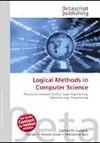智能选择和选择单子
IF 1
4区 数学
Q4 COMPUTER SCIENCE, THEORY & METHODS
引用次数: 0
摘要
根据选择及其产生的成本和回报来描述系统,可以让算法设计师和程序员免于指定应该如何做出这些选择;在实现中,选择可以通过优化技术来实现,并且越来越多地通过机器学习方法来实现。我们从编程语言的角度来研究这种方法。我们定义了两种支持决策抽象的小语言:一种带有选择和奖励,另一种带有概率。我们给出了操作语义和指称语义。在第二种语言的情况下,我们考虑三种指称语义,它们在可能的程序值和预期奖励之间具有不同程度的相关性。操作语义结合了标准构造的常用语义和对可能执行策略空间的优化。表意语义是组合的,它依赖于选择单子来处理选择,并增加一个辅助单子来处理其他效果,比如奖励或概率。我们建立了两个语义在所有情况下重合的充分性定理。我们还证明了基本类型的完全抽象,在概率情况下,观察的不同概念对应于不同程度的相关。我们给出了奖励与概率结合的选择公理,建立了无概率奖励情况下基本类型的完备性。本文章由计算机程序翻译,如有差异,请以英文原文为准。
Smart Choices and the Selection Monad
Describing systems in terms of choices and their resulting costs and rewards offers the promise of freeing algorithm designers and programmers from specifying how those choices should be made; in implementations, the choices can be realized by optimization techniques and, increasingly, by machine-learning methods. We study this approach from a programming-language perspective. We define two small languages that support decision-making abstractions: one with choices and rewards, and the other additionally with probabilities. We give both operational and denotational semantics. In the case of the second language we consider three denotational semantics, with varying degrees of correlation between possible program values and expected rewards. The operational semantics combine the usual semantics of standard constructs with optimization over spaces of possible execution strategies. The denotational semantics, which are compositional, rely on the selection monad, to handle choice, augmented with an auxiliary monad to handle other effects, such as rewards or probability. We establish adequacy theorems that the two semantics coincide in all cases. We also prove full abstraction at base types, with varying notions of observation in the probabilistic case corresponding to the various degrees of correlation. We present axioms for choice combined with rewards and probability, establishing completeness at base types for the case of rewards without probability.
求助全文
通过发布文献求助,成功后即可免费获取论文全文。
去求助
来源期刊

Logical Methods in Computer Science
工程技术-计算机:理论方法
CiteScore
1.80
自引率
0.00%
发文量
105
审稿时长
6-12 weeks
期刊介绍:
Logical Methods in Computer Science is a fully refereed, open access, free, electronic journal. It welcomes papers on theoretical and practical areas in computer science involving logical methods, taken in a broad sense; some particular areas within its scope are listed below. Papers are refereed in the traditional way, with two or more referees per paper. Copyright is retained by the author.
Topics of Logical Methods in Computer Science:
Algebraic methods
Automata and logic
Automated deduction
Categorical models and logic
Coalgebraic methods
Computability and Logic
Computer-aided verification
Concurrency theory
Constraint programming
Cyber-physical systems
Database theory
Defeasible reasoning
Domain theory
Emerging topics: Computational systems in biology
Emerging topics: Quantum computation and logic
Finite model theory
Formalized mathematics
Functional programming and lambda calculus
Inductive logic and learning
Interactive proof checking
Logic and algorithms
Logic and complexity
Logic and games
Logic and probability
Logic for knowledge representation
Logic programming
Logics of programs
Modal and temporal logics
Program analysis and type checking
Program development and specification
Proof complexity
Real time and hybrid systems
Reasoning about actions and planning
Satisfiability
Security
Semantics of programming languages
Term rewriting and equational logic
Type theory and constructive mathematics.
 求助内容:
求助内容: 应助结果提醒方式:
应助结果提醒方式:


